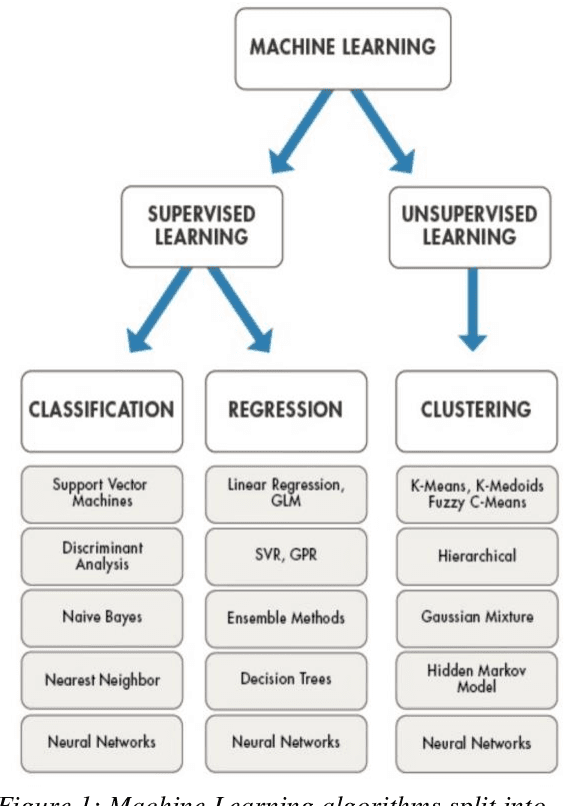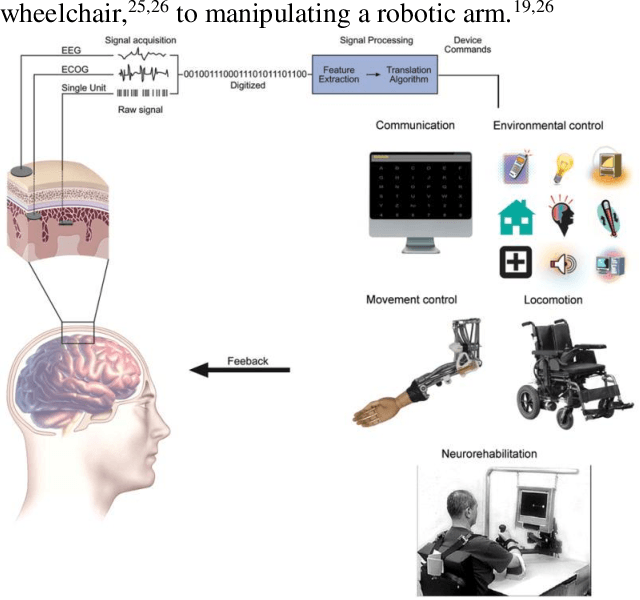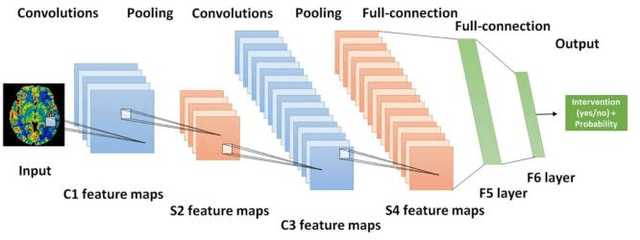Jennifer Schuman
Review of Machine Learning Algorithms for Brain Stroke Diagnosis and Prognosis by EEG Analysis
Aug 06, 2020



Abstract:Currently, strokes are the leading cause of adult disability in the United States. Traditional treatment and rehabilitation options such as physical therapy and tissue plasminogen activator are limited in their effectiveness and ability to restore mobility and function to the patient. As a result, there exists an opportunity to greatly improve the treatment for strokes. Machine learning, specifically techniques that utilize Brain-Computer Interfaces (BCIs) to help the patient either restore neurologic pathways or effectively communicate with an electronic prosthetic, show promising results when applied to both stroke diagnosis and rehabilitation. In this review, sources that design and implement BCIs for treatment of stroke patients are evaluated and categorized based on their successful applications for stroke diagnosis or stroke rehabilitation. The various machine learning techniques and algorithms that are addressed and combined with BCI technology show that the use of BCIs for stroke treatment is a promising and rapidly expanding field.
 Add to Chrome
Add to Chrome Add to Firefox
Add to Firefox Add to Edge
Add to Edge